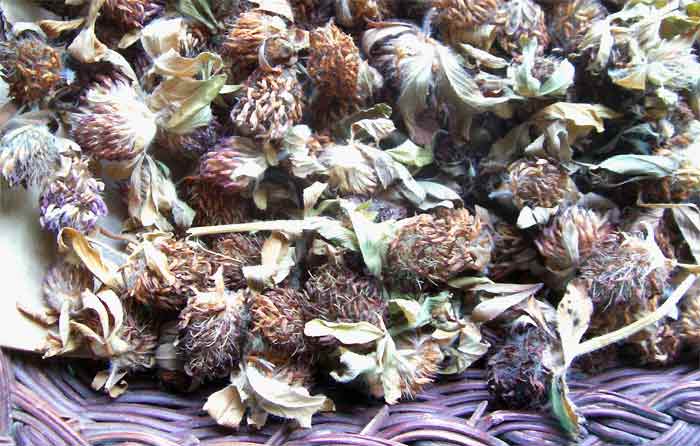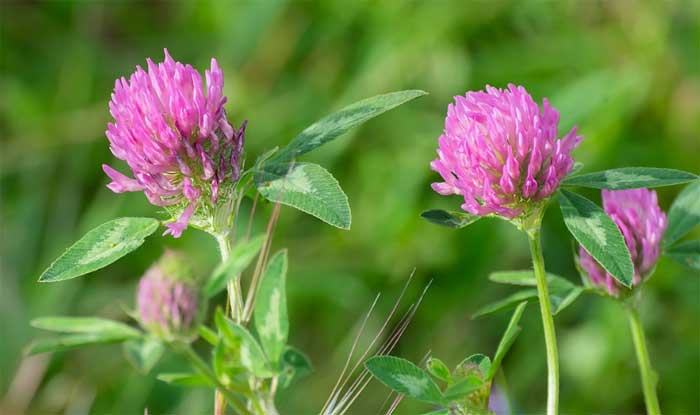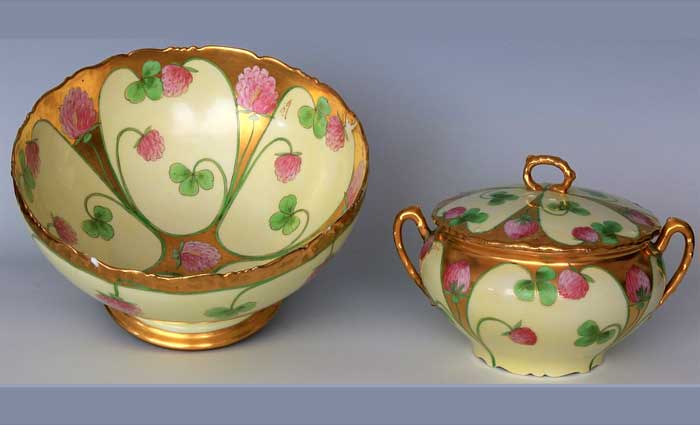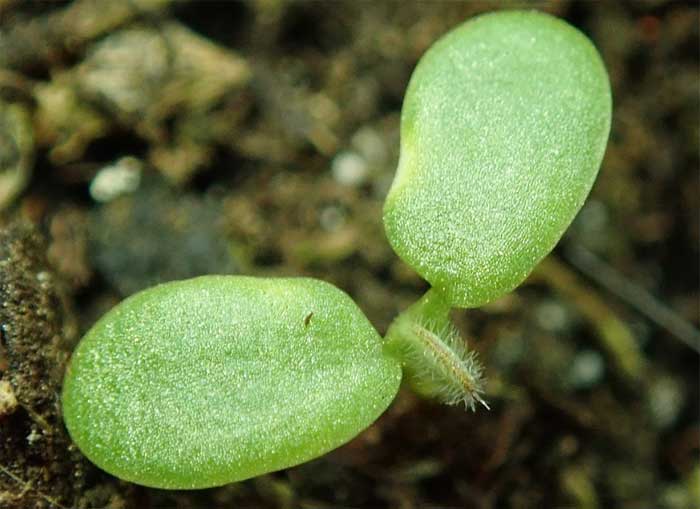Red clover in herbal medicine

Red clover (Trifolium pratense) is especially useful for women with uterine problems. It has been used for centuries as a uterine tonic. Red Clover can regulate the menstrual cycle, and is used in the treatment of menopausal symptoms like hot flashes.
Red clover is considered to be one of the richest sources of isoflavonoids and water-soluble plant estrogens, making it very healing for women past their forties.

Red clover blossoms contain natural estrogen-like substances
These plant based estrogens help relieve everything from night sweats to mild depression.
Red clover can also be useful in the treatment of PMS, colds, flu, skin problems, coughs, bronchitis, arthritic pain, osteoporosis, gout, and heart disease.
Red clover and the skin
Use red clover in herbal teas and washes to treat skin problems such as eczema, psoriasis, acne, dandruff, and itchy rashes. The herb is good for all skin inflammation including bug bites and stings.
Make a strong tea and apply liberally to the skin as a wash. Use two or three teaspoons of dried flowers to a cup of boiling water.
Apply externally as needed and drink one or two cups of tea for best results.

Red clover compresses
Red clover can be used in ointments and poultices as a remedy for gout, lymphatic swelling, and arthritis pain. Use two or three times a day and at bedtime to relieve achy joints.
Read more about making natural homemade ointments and poultices.
Red clover and cancer
Tests have shown that red clover may be useful in the prevention of breast, ovarian, endometrial, and lymphatic cancers.
The estrogen like substances in red clover may also block enzymes thought to contribute to prostate cancer in men.
When taken on a regular basis, red clover may help prevent these cancers from developing.
Some scientists say consumption of plant estrogens like those in red clover contribute to the growth of cancer cells. Most herbalists say the plant estrogens (phytoestrogens) in red clover are safe and effective because they block receptors that usually absorb more harmful environmental estrogens. More research is needed on this subject!
Other uses for red clover
Red clover is known to help prevent heart disease by lowering the levels of bad cholesterol and raising the levels of good cholesterol.
Red clover contains chemicals known as coumarins, which may help keep the blood from becoming thick and gummy. This helps reduce the formation of blood clots.
Red clover blossoms are full of nutrients.
Red clover is high in calcium, magnesium, potassium, and vitamin C. The pretty little round flowers may be added to salads, soups, and stews.
Red clover grows abundantly in North America.
Red clover is often found in pastures, meadows, and along the highways. Flowering tops are harvested in summer and dried for winter use. They may also be used fresh.
Red clover is easy to grow from seeds.
The plant has a deep root system and can tolerate dry or wet soil conditions. Red clover is a short-lived perennial and is most productive in its second year. Red clover may be planted in full sun or part shade.

*Red clover should be used with caution by people with a history of breast cancer. Red Clover interferes with the efficacy of Tamoxifen. Do not take red clover with blood thinners.
Red clover is very diuretic so always drink plenty of water to avoid dehydration when using this herb. Do not take red clover when pregnant. Excessive use of red clover may increase the risk of excessive bleeding in some people.
Always consult with a healthcare professional before using any herbal remedy especially if pregnant, nursing, or taking other medicines.
Sources:
https://www.ncbi.nlm.nih.gov/pmc/articles/PMC8069620/
https://www.nccih.nih.gov/health/red-clover
Blessings to you and yours!
Thanks so much for reading my blog. Jan.

*Note - the information on this website has not been evaluated by the Food and Drug Administration.
© 2005-2024 website design and content by Janice Boling